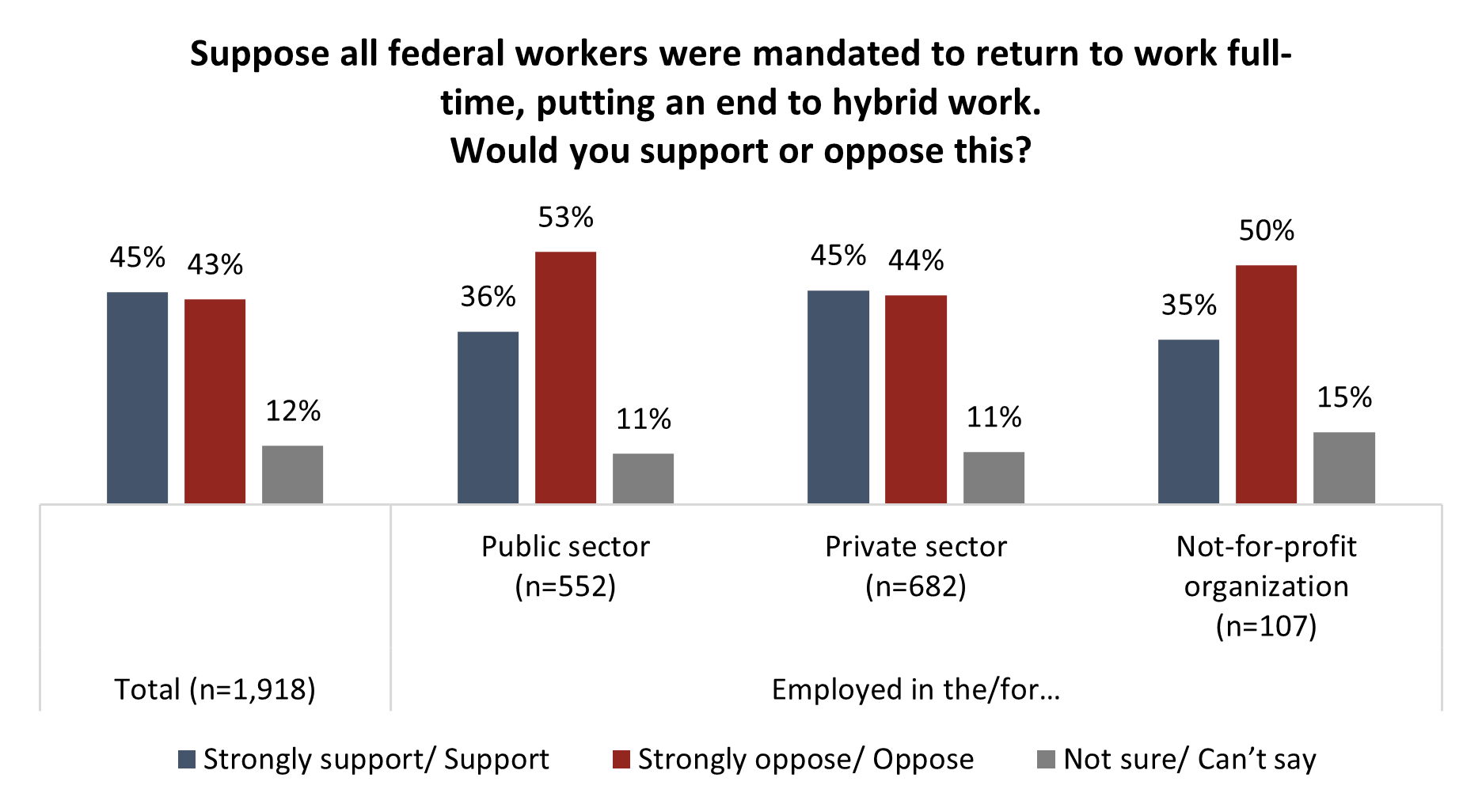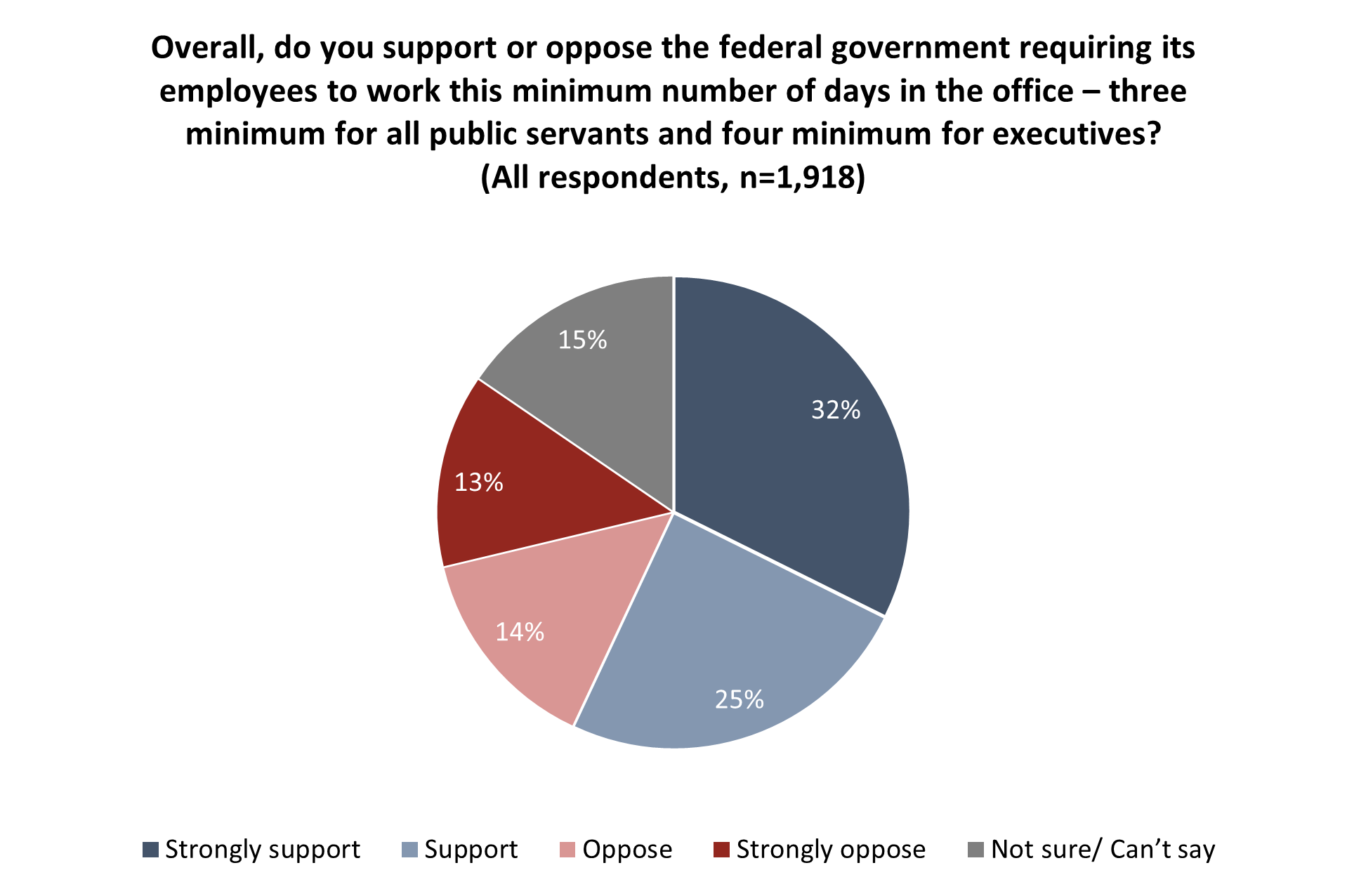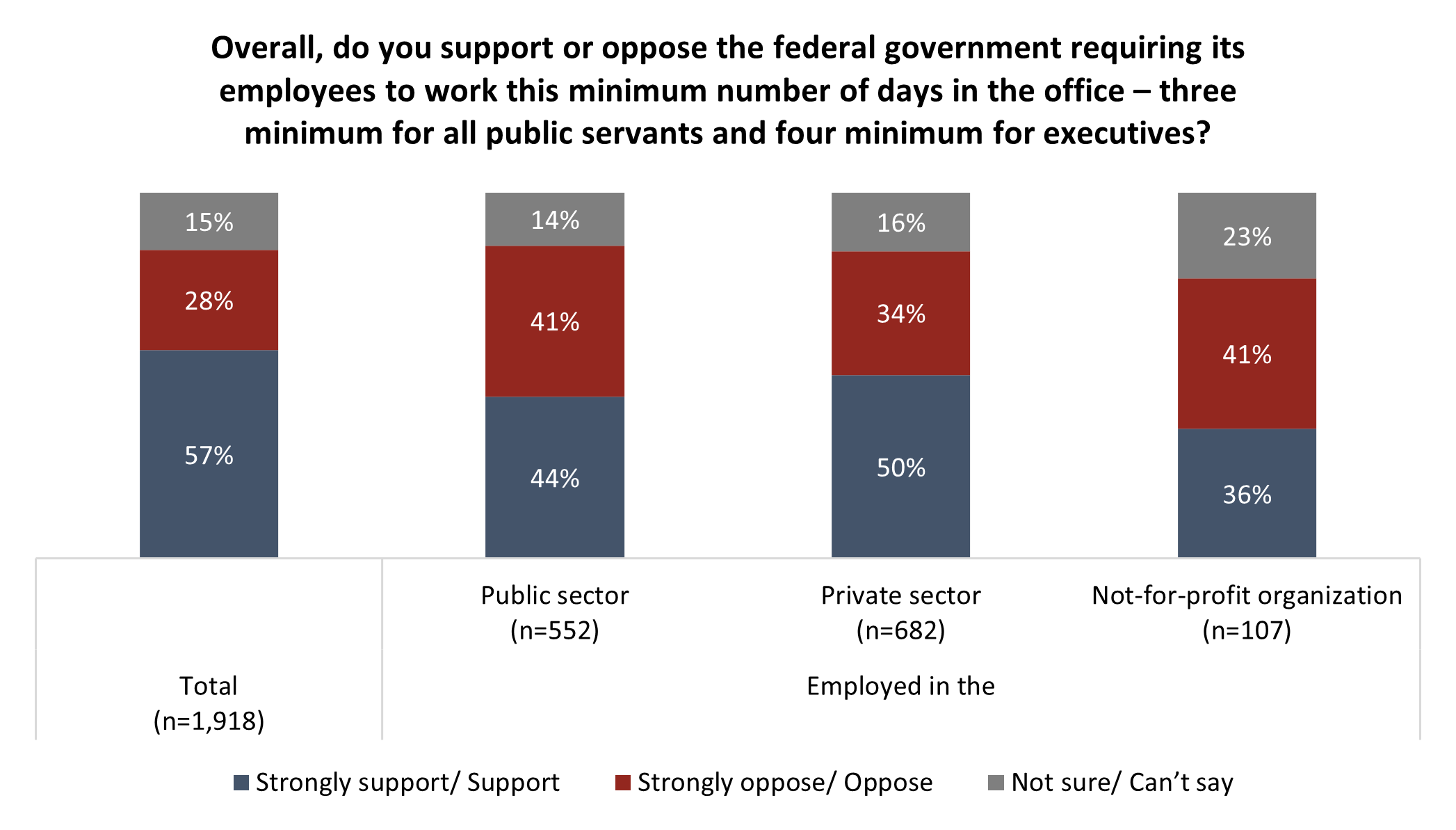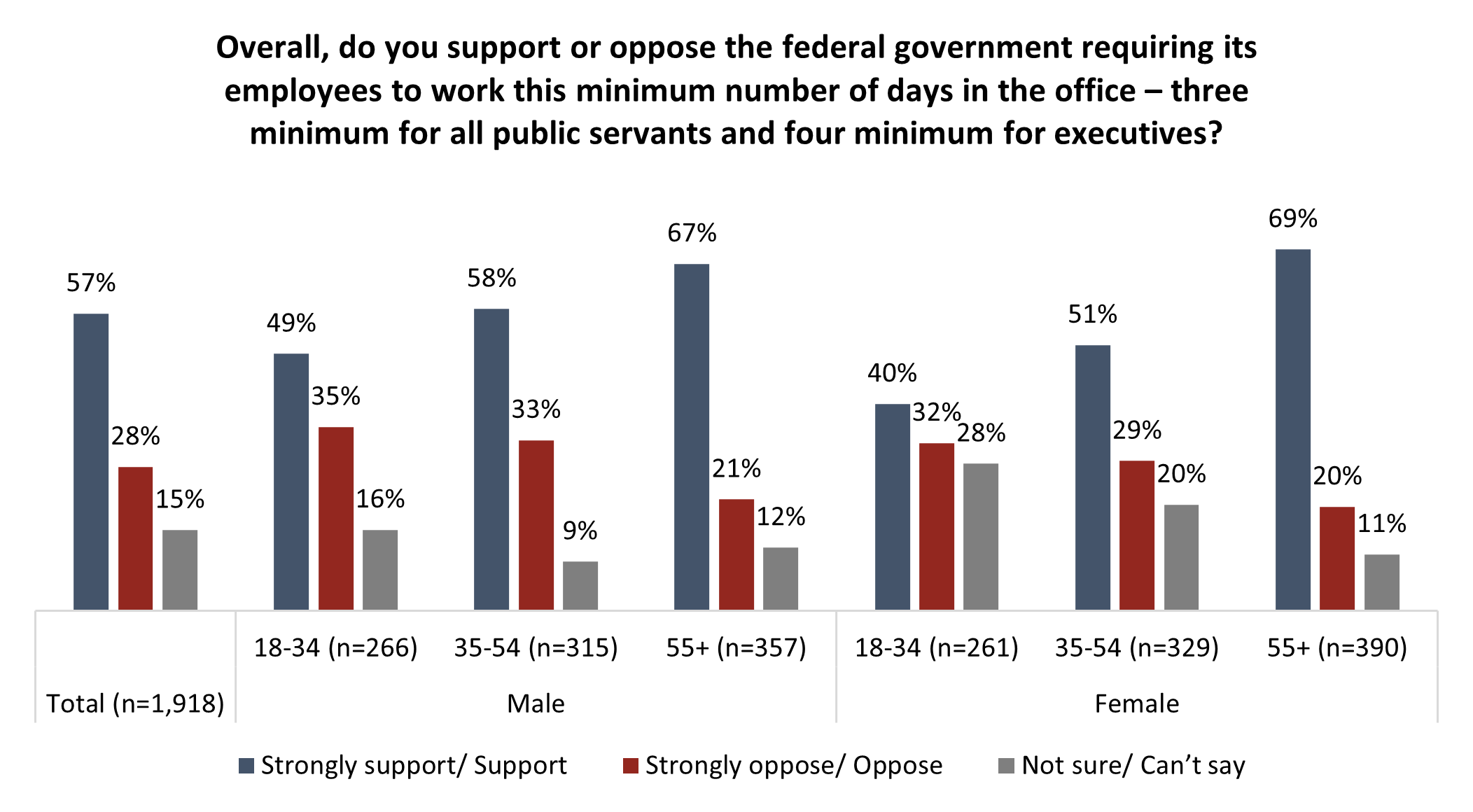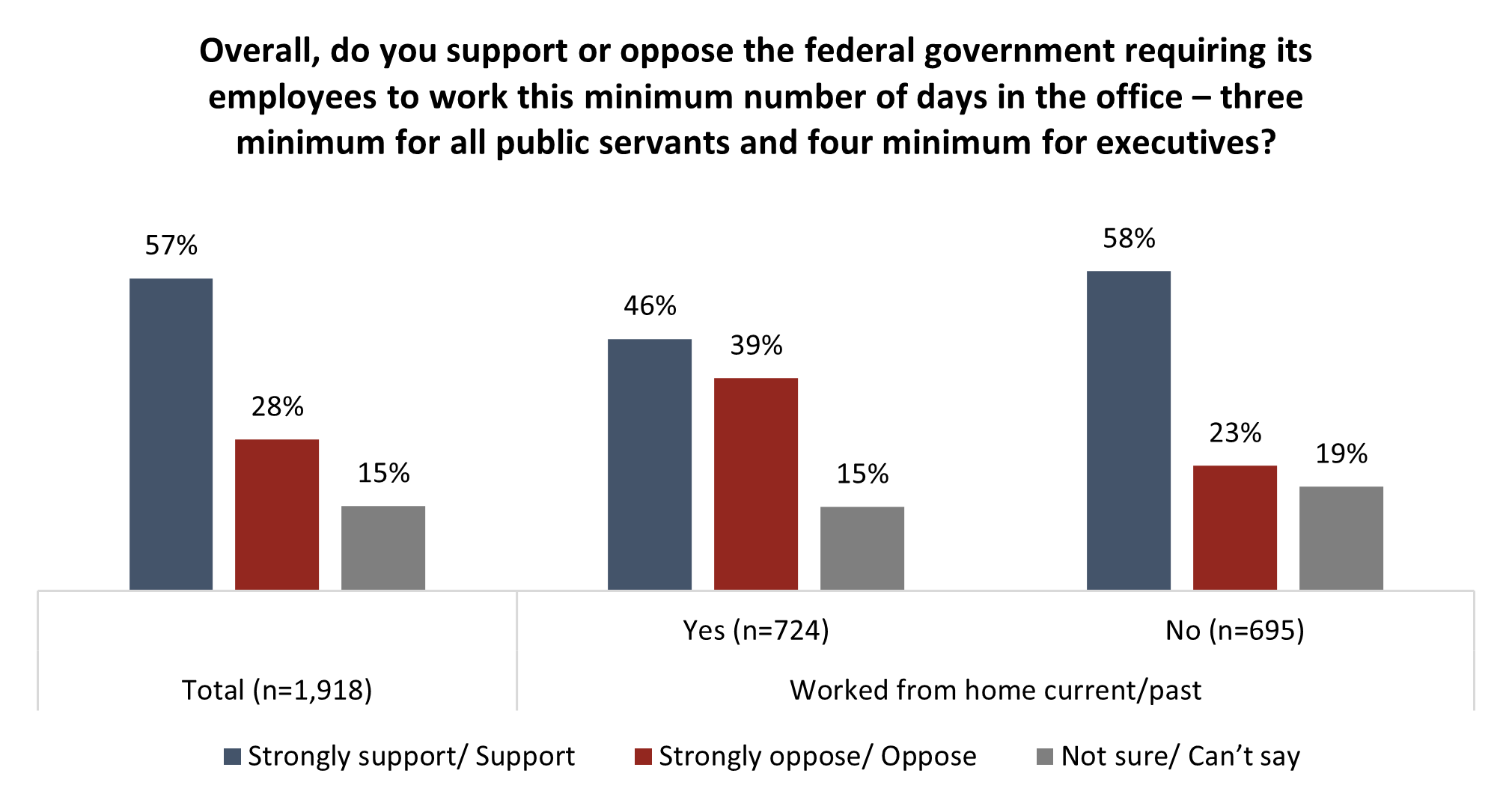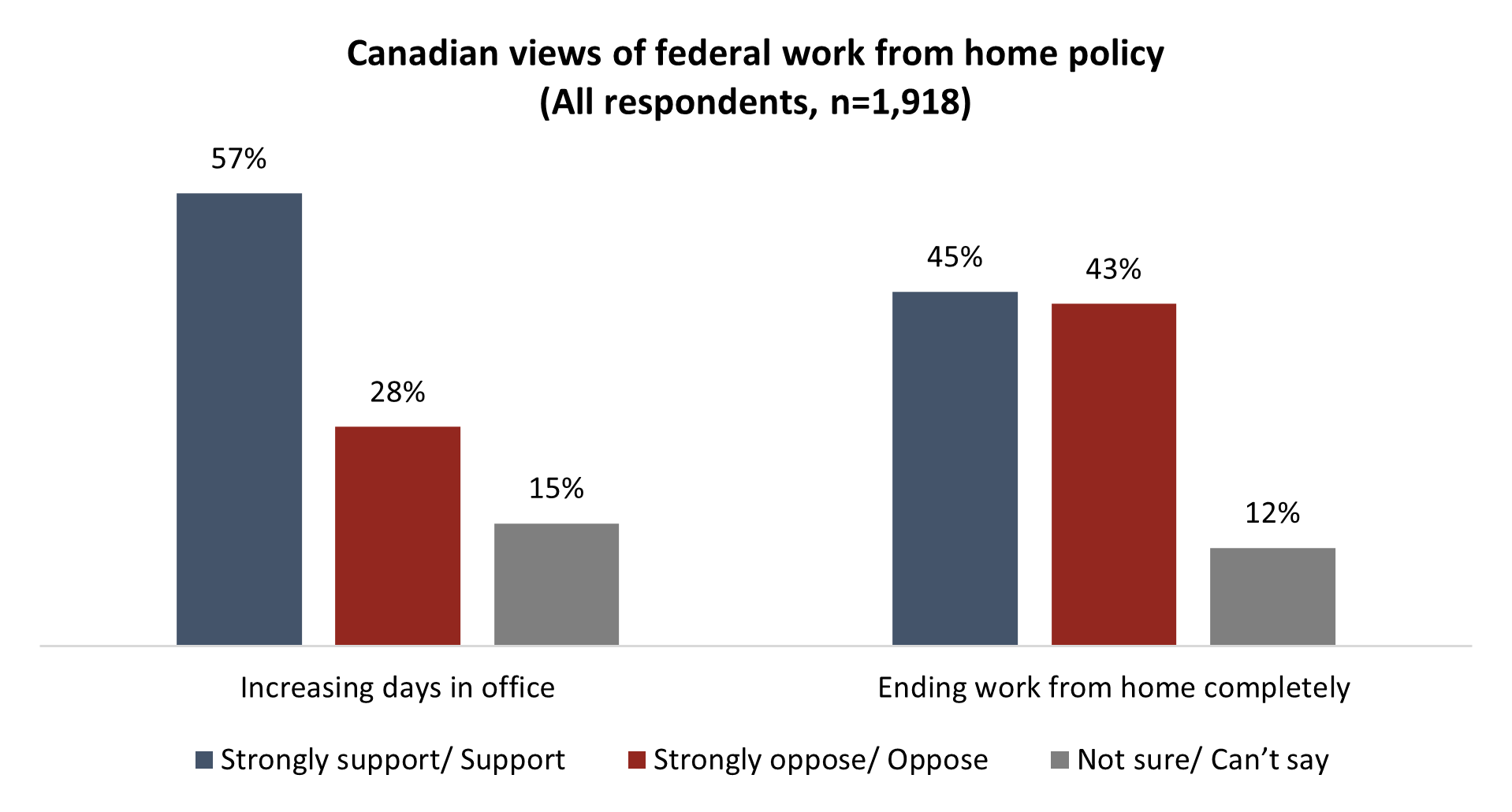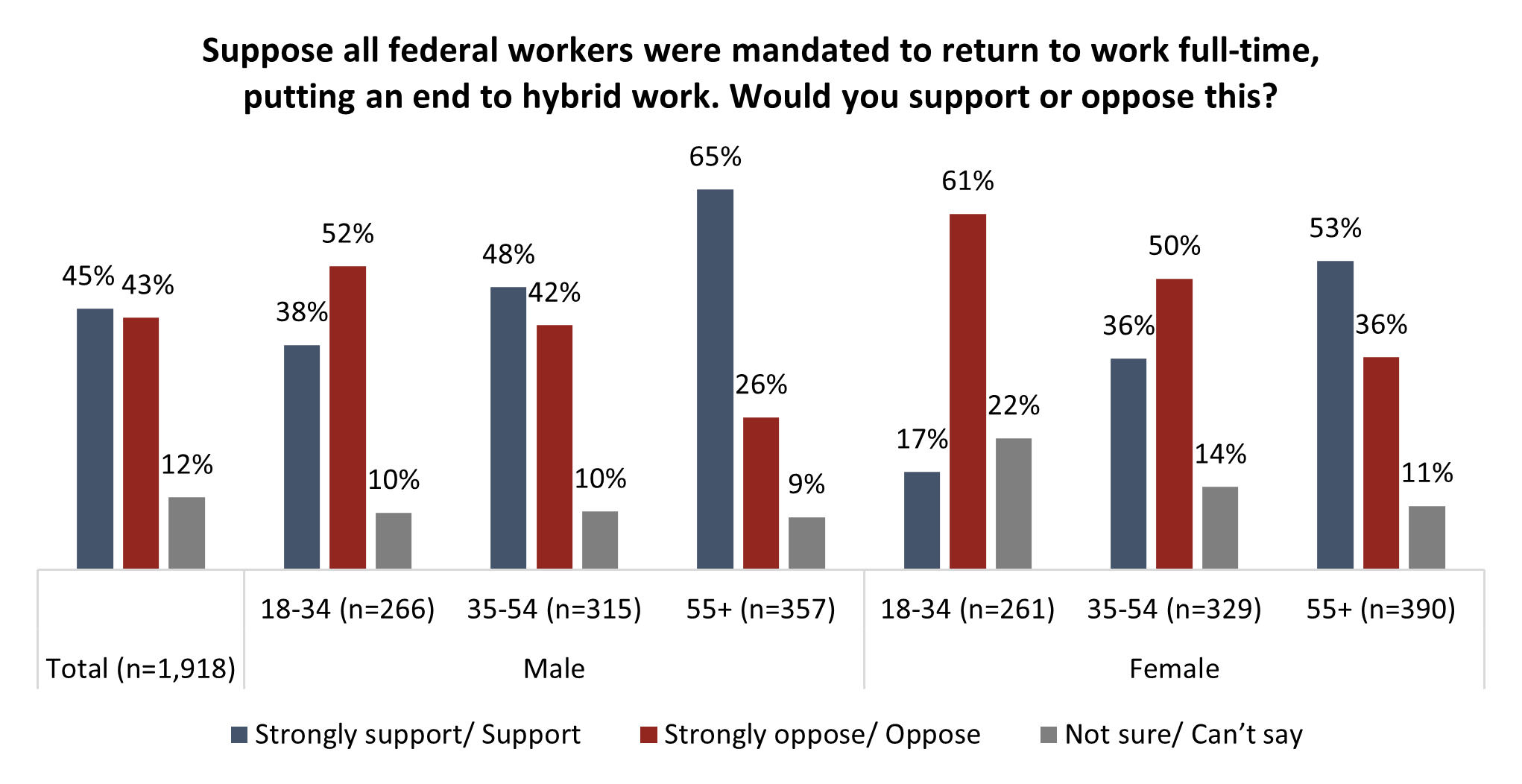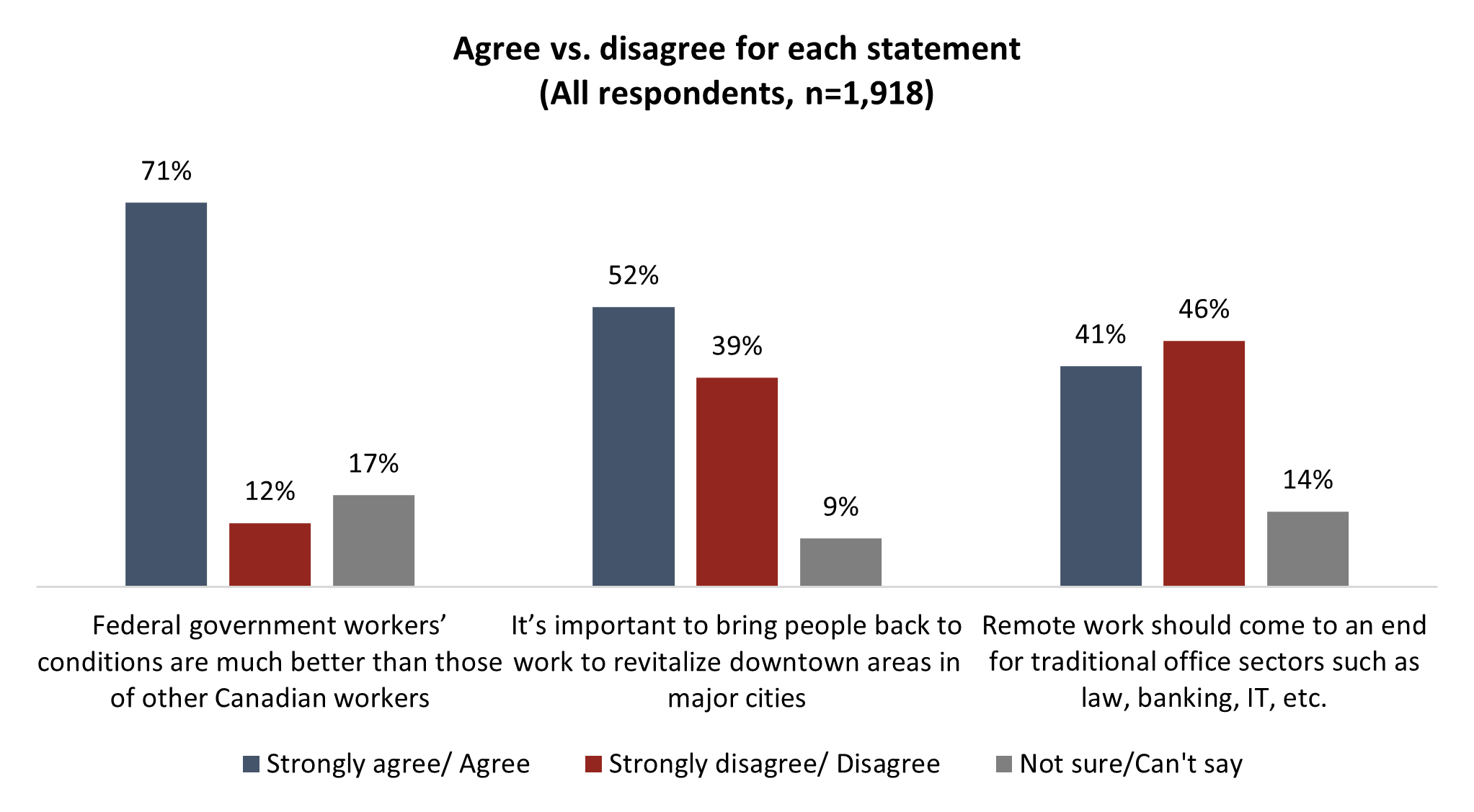Majority are supportive of maintain current model of three days for employees, four for executives
September 3, 2025 – The slow but steady march of workers back to their on-site offices picked up in tempo when the Ontario government announced that its public sector employees would be required in the office full time in January.
Ontario Premier Doug Ford may be increasing the pace of the return, but new data from the non-profit Angus Reid Institute finds Canadians divided over the federal government following suit. Slightly fewer than half are supportive (45%) while close to the same number are opposed (43%). Among public sector workers, fully half (53%) oppose this idea compared to one-in-three (36%) who are in favour.
So far, the federal government has kept its options open as to whether it will require its employees to work fully in the office in the future. The current federal policy – at least three in-office days for most, four days for executives – has the support of three-in-five (57%).
On the issue of a full return to office for federal workers, there appears to be differences of opinion among those who have experience working from home, and along generational and gender divides. Those who have some experience working from home are more likely to be opposed (64%) than those who have never done so (47%). As well, public sector employees express more opposition (53%) than those employed in the private sector (44%).
A majority of older Canadians (59%) and half of men (52%) believe hybrid work for federal civil servants should end. Women (47% opposed, 38% support) and Canadians under 35 (56% opposed, 28% support) are less in favour of ending remote work for the federal public service.
INDEX
Part One: The current federal situation
Views by gender and age
Those with experience working from home vs. those without
Part Two: A full federal return to the office?
Part One: The current federal situation
In the midst of a sea change that’s seen private sector employers increasingly demand more days in the office from previously remote workers, the Ontario government made waves this month with a demand that all public servants return to the office full time.
Since April 2022, public servants in Canada’s largest province had been allowed to work from two days a week. By January 2026, all will be expected back in the office. Although Ontario Premier Doug Ford said he did not use policies put forward by some of Canada’s big banks as an example, the province’s decision followed recent announcements by RBC, Scotiabank, BMO and TD ordering their workers to spend at least four days a week in the office.
It also followed reports that the federal government would not rule out a similar call back to the office for its public servants across the country. Currently, federal civil servants are required to be in the office for three days a week, while those at the executive level must be present for four. Last year, the federal government asked workers to come back for one more day in the fall, which was opposed by the federal employees’ unions. Prior to that, civil servants were only required to be in the office for two days a week.
The previous move to call back federal workers for more time in the office was supported by three-in-five (59%) Canadians in May 2024, though support was lower among public sector union members.
Support is at the same level among Canadians for the current policy, with 57 per cent saying they support requiring federal workers be in the office at least three days a week, or four if they are executives:
Opposition is higher (41%) among those who work in the public sector, which includes a diverse group of employees from across the country, including such occupations as teachers and nurses:
Views by gender and age
Assessments of remote work have been different between men and women consistently since the pandemic made working from home much more common. Issues around the gender imbalance of housework and raising children remain, and are perhaps one of the reasons women have been slower to return to the office than men. One-quarter (27%) of Canadians in the work force with kids told the Angus Reid Institute that saving on childcare costs was one of the biggest benefits of spending more time working from home.
With that in the background, younger women are less likely than men the same age to say they support the current federal remote work policy. While Canadians older than 54, both men and women, overwhelmingly support the policy as it stands:
Those with experience working from home vs. those without
Experience working from home also plays a role in how Canadians view the current federal government policy. Those who have worked from home at some point in their careers are more likely to oppose it (39%) than those who have not (23%), but the policy still finds more support (46%) than opposition among former and current remote workers:
Part Two: A full federal return to the office?
The federal government has not shown its hand when it comes to whether a full return to the office will be mandated for its workforce down the road. But it has stated that it wants to shrink the size of the public service through attrition – retirements and resignations. Federal ministers were told to find 7.5 per cent in savings for their department for the next fiscal year, which begins April 1, 2026.
In Ontario, while Premier Ford argued that productivity and mentorship were the provincial government’s motives for ordering its employees back to the office full time come 2026, others have speculated that downsizing the provincial public sector was also a motivation.
Whether or not it is in the cards, Canadians are split as to whether they support (45%) or oppose (43%) a full return to work for federal employees. Increasing days in the office was more popular (57% support):
The generational and gender divide noted above is evident on a full federal return to work mandate. Women under 35 are the most opposed to the federal government ordering a full return to the office, while support rises among older men and women. Two-thirds (65%) of men older than 54 support an end to hybrid work, the most of any demographic:
A majority (53%) of public sector employees say they oppose a full return to work for federal employees. Those who work in the private sector are more divided (45% support, 44% oppose):
The decline in downtown workers as remote work became more common during the pandemic took its toll on businesses in urban areas across the country. In 2022, the Canadian Chamber of Commerce wrote an open letter asking the federal government to bring back its workers for “a return to normal economic activity”.
Ontario Premier Ford echoed that call in 2024, saying the federal government needed to bring back offices “to get the economy going” in downtown Ottawa. He repeated the assertion that government employees need to be in the office to help Ontario businesses suffering from a lack of foot traffic when he made the announcement this month that all provincial employees would return to the office full time.
A return to work being tied to downtown economies apparently rankled the federal public sector union, who asked, then recanted, that its members pack lunches, shop in their home neighbourhoods and “buy nothing” in downtown Ottawa when they returned to the office for an additional day each week last fall. “The needs of the downtown core shouldn’t fall on the backs of workers and the federal public service,” read a Public Service Alliance of Canada (PSAC) graphic posted then deleted on social media.
Half (52%) of Canadians believe that bringing people back to work is key to revitalizing Canada’s downtowns.
Most (71%) also believe that federal public workers enjoy better working conditions than others.
However, the idea that remote work should be left in the pandemic era for office sectors is more divisive (41% agree, 46% disagree):
For detailed results by age, gender, region, education, and other demographics, click here.
For PDF of full release, click here.
For questionnaire, click here.
MEDIA CONTACTS:
Shachi Kurl, President: 604.908.1693 shachi.kurl@angusreid.org @shachikurl
Dave Korzinski, Research Director: 250.899.0821 dave.korzinski@angusreid.org
Jon Roe, Research Associate: 825.437.1147 jon.roe@angusreid.org


